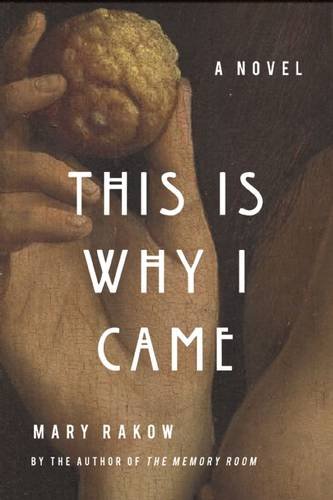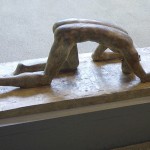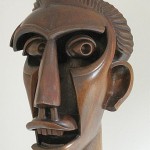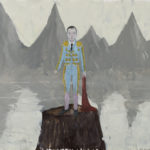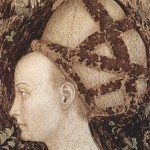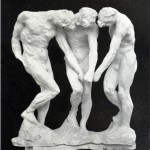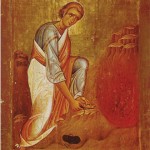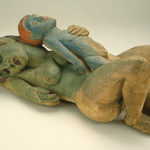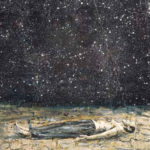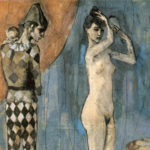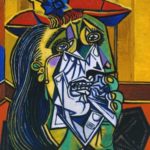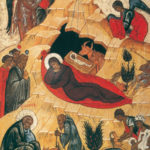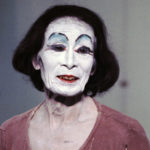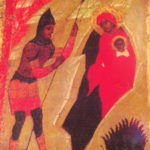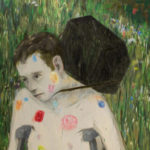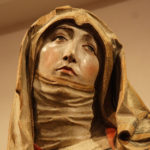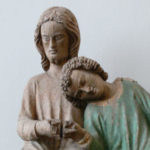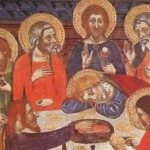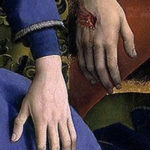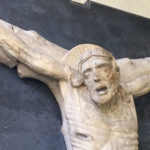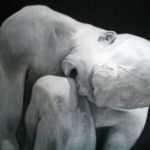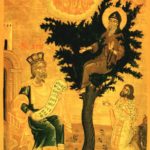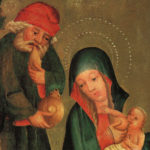He’d missed her. Gone three months and no word. He groomed his hair, his fingernails. “She’s coming to me,” he told himself, “the Queen of Galilee.”
But she was pregnant when she returned from the hill country and the only thing he knew for certain was that he was not the father.
It was God’s child? She was talking to angels now? Even the details didn’t make sense. She went without saying good-bye, didn’t tell him or her parents but had just run away.
“Look at my hands, my feet,” he exclaimed. “I’m a practical man! What am I to do?”
It felt new to call himself “a practical man,” new to call himself a man at all. His father had been encouraging him to become more independent, stronger, more reliable, and he had tried to grow into this for his father’s sake. He was engaged, he and Mary would have many children, he would stop drifting and apply himself to his trade. He would build a large family table with many leaves and Mary would learn to cook, making large pots of lentils, soups and stews. He could picture it. Mary would even teach him to read and teach their children to read, one by one. He would make beautiful, useful objects of wood, writing desks, fine cases, and his business would prosper. Knowing well the various trees and their distinct properties, the work of his life would glorify God and bring honor to his family. But he was not prepared for this.
He unfolded the drawing his father had made for him, of a boy his own age, also sixteen, saying, “He’s just like you.” Joseph held the picture and practiced standing in front of the mirror being that boy, David with Goliath, his hand on his hip, as if he had no fear. He practiced the boy’s cocky pose, the slingshot, the soft boots, the sword, and stood a long time until he could really feel the doubts fall at his feet. His father had drawn the slingshot but also a sword, explaining, “Just in case the stone misses its mark.” Then added, “Courage is required for every other virtue, Joseph. Remember that.”
For many nights he kept to himself and Mary was shaken by it, her life in the balance and the baby’s life, too. But she knew it was his habit to make difficult decisions in sleep and silence, waiting for the authoritative voice that was not his own, the familiar voice that had never done him ill. Living on the film of his dreams.
As he stood practicing bravery, Joseph began to feel supported as if by a sturdy platform made of wood. The platform lifted him and Mary over this difficult time and into another, where they were a bit older, he maybe twenty and Mary nineteen. Mary was again like a dream to him, his queen, alive and real. All the confusion fell away. In fact, everything fell away except that he loved her. And she desperately needed to be believed.
And he came out of his room and returned to her. Not twenty and nineteen but sixteen and fifteen. It didn’t matter. They held each other and, girded with gladness, flew out of the familiar into the great unknown.
Details from Jan van Eyck (circa 1390–1441) [Public domain], via Wikimedia Commons.

